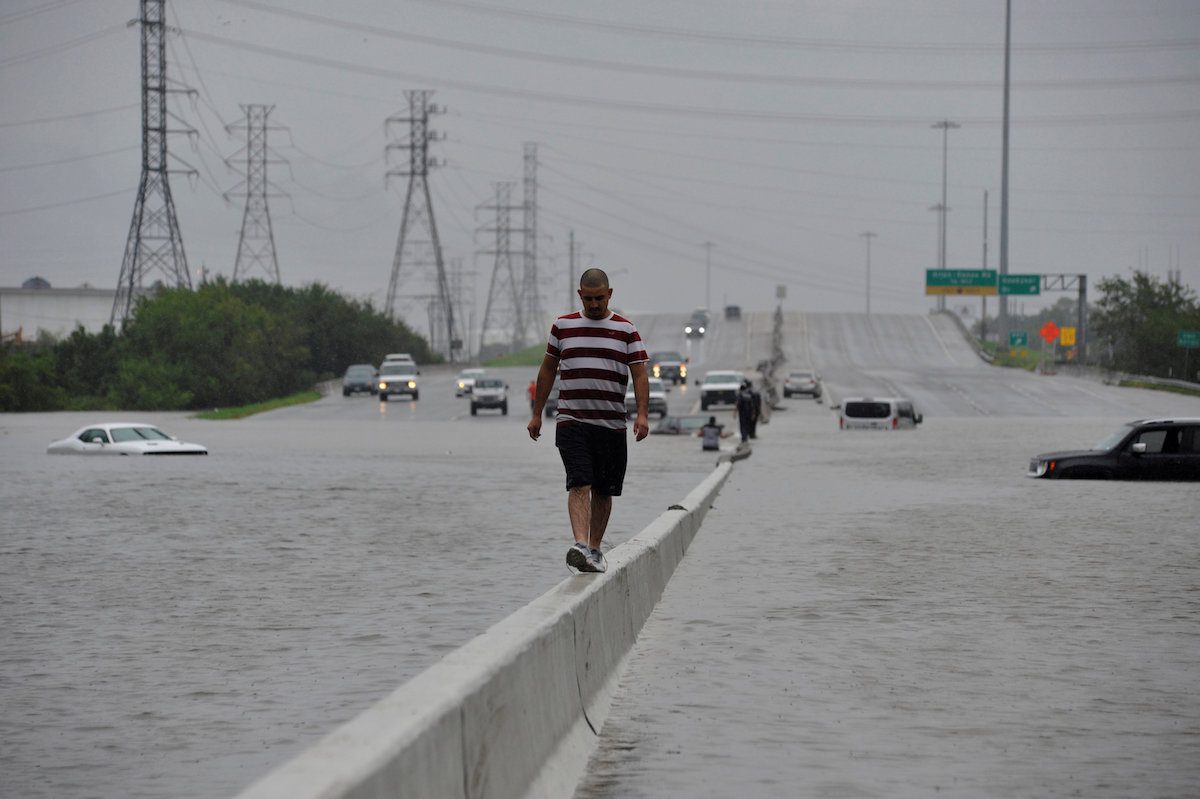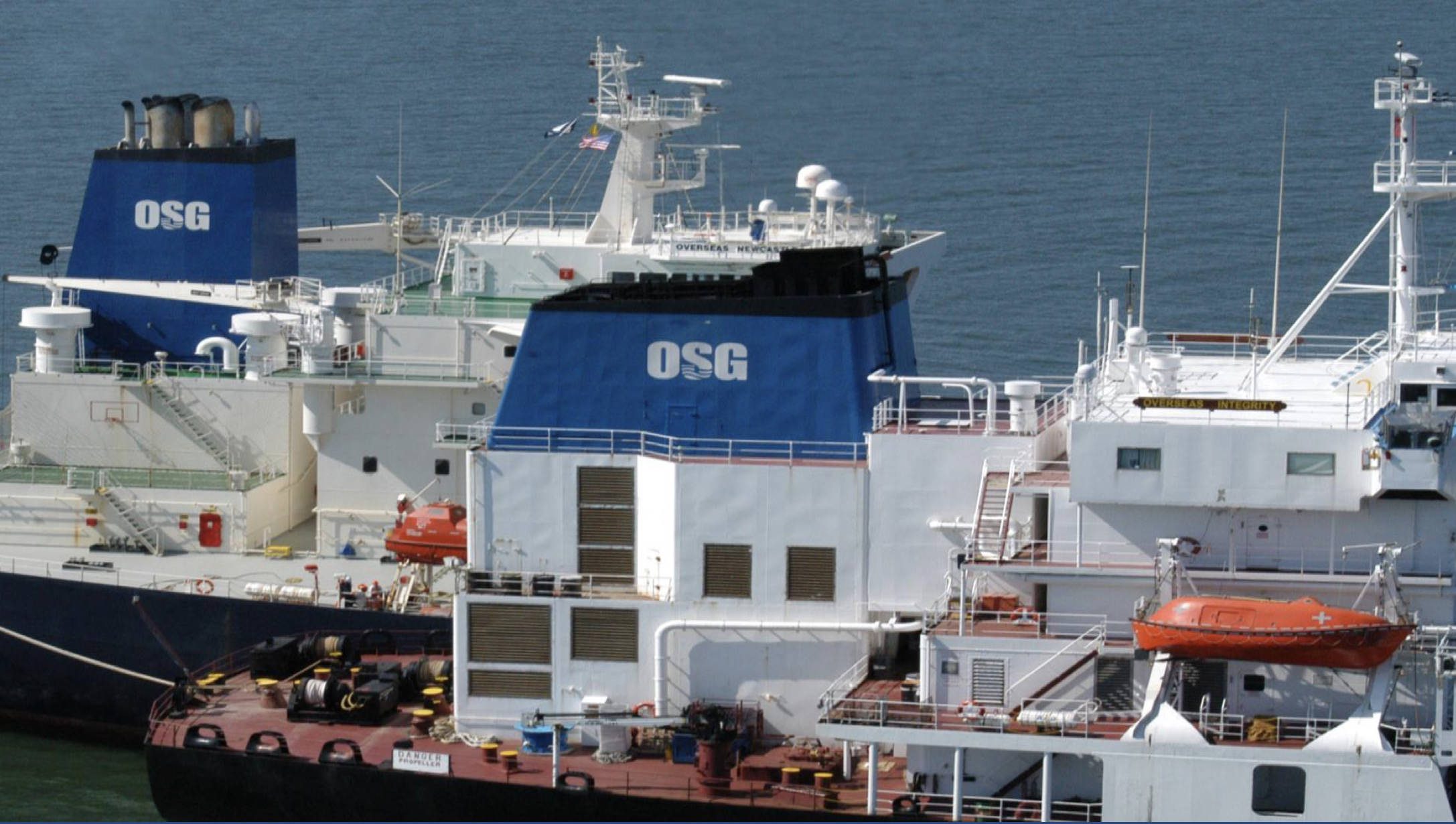A stranded motorist escapes floodwaters on Interstate 225 after Hurricane Harvey inundated the Texas Gulf coast with rain causing mass flooding, in Houston, Texas, U.S. August 27, 2017. REUTERS/Nick Oxford
By Eric Roston (Bloomberg) –Days after millions of climate protesters called for international action and global leaders convened at the United Nations Climate Action Summit, the world’s top climate-science body warned that collaboration on a global scale is required to cope with an onslaught of accelerating changes.
Chief among them is rapidly rising seas that will permanently alter how humans live—and where.
That’s the conclusion from a new report on human-induced changes in the world’s oceans and icy regions, published Wednesday by the UN-backed Intergovernmental Panel on Climate Change. Drawing from disciplines as diverse as ice-sheet dynamics to fisheries management, the report is snapshot of a world at 1 degree Celsius of warming.
Humanity is to blame for the “widespread shrinking” of previously icy areas, with melting glaciers, diminished snow cover, disappearing Arctic sea ice and rising permafrost temperatures, the IPCC reports. As that happens, coastal regions are being inundated, and it’s only going to get worse.
The report is noteworthy for its direct acknowledgment—with evidence—of something that until now has been left to activists and climate-aware politicians. Many parts of global climate change are not only here, but they are permanent, and will only grow in scale.
“We are looking at a ‘forever issue,’” said Bruce Glavovic, professor at Massey University in New Zealand and co-author of the new report’s chapter on sea-level rise. “This is an existential crisis. This is not a science issue. What we’re dealing with is a moral imperative.”
Oceans have warmed continuously since 1970, the new report found, absorbing more than 90% of the extra heat trapped in the atmosphere. The speed of that warming has more than doubled since 1993. Oceans are becoming more acidic and losing oxygen, which could threaten marine ecosystems. Marine animals and plants are shifting their ranges as temperature, acidity and saltiness fluctuate, upsetting communities and economies reliant on marine protein for sustenance and trade.
That additional heat is fueling even more powerful storms. Hurricanes are moving further from the equators, and more of these already massive storms are of the most powerful, catastrophic varieties.
Sea levels are a major concern of the new report. Oceans have risen about 16 centimeters since the beginning of the 20th century, and the rate of increase since 1990 is more than double what it was the previous 100 years. The IPCC last addressed rising oceans in 2013, estimating global average sea levels would rise less than 1 meter by 2100. The new report finds instead that oceans may rise beyond that threshold, due to the increased melting of ice sheets in Greenland and Antarctica.
“Our best projection is that we’ll see even bigger impacts in the future.”
Many topics in Earth science, like sea-level rise or permafrost melt, are difficult to project because they’re dependent on feedbacks from other things going haywire—or not—in the system. “The picture isn’t perfectly clear,” said IPCC Vice Chair Ko Barrett, at a press conference in Monaco. “But our best projection is that we’ll see even bigger impacts in the future.”
Governments are struggling to plan and pay for those larger impacts. In some cases, adapting to our new climate reality is simply not possible, the IPCC authors contend. There are “adaptation limits,” or situations where human ingenuity is simply incapable of matching natural wrath. In these regions, such as low-lying Pacific island atolls, retreat may eventually be the only solution.
The UN report begins with an attempt to explain the importance of water and ice. Life on Earth is dependent on healthy oceans and frozen water in the right places, the group said, a palpable attempt by scientists to establish the immediacy of their work to an audience of 7.5 billion people.
More than 100 authors from 36 countries contributed to the report summary, which underscoed the centrality of human-decision-making to whatever happens next. The report was approved by 195 governments who belong to the IPCC.
© 2019 Bloomberg L.P
Unlock Exclusive Insights Today!
Join the gCaptain Club for curated content, insider opinions, and vibrant community discussions.

 Join The Club
Join The Club







![A screengrab of a map showing an earthquake Mindanao, Philippines on Dec 2, 2023. (Image: US Geological Survey [USGS])](https://gcaptain.com/wp-content/uploads/2023/12/Screenshot-2023-12-02-at-10.45.17-AM-copy.png.webp)





